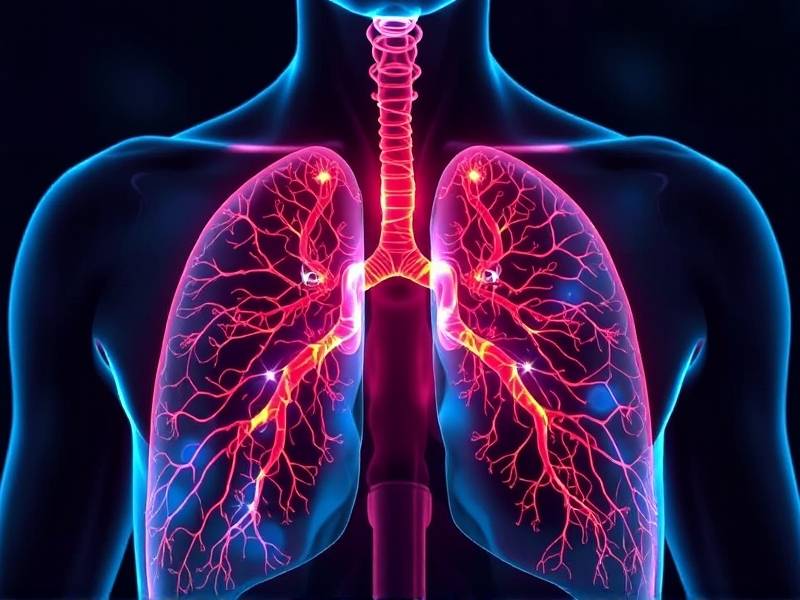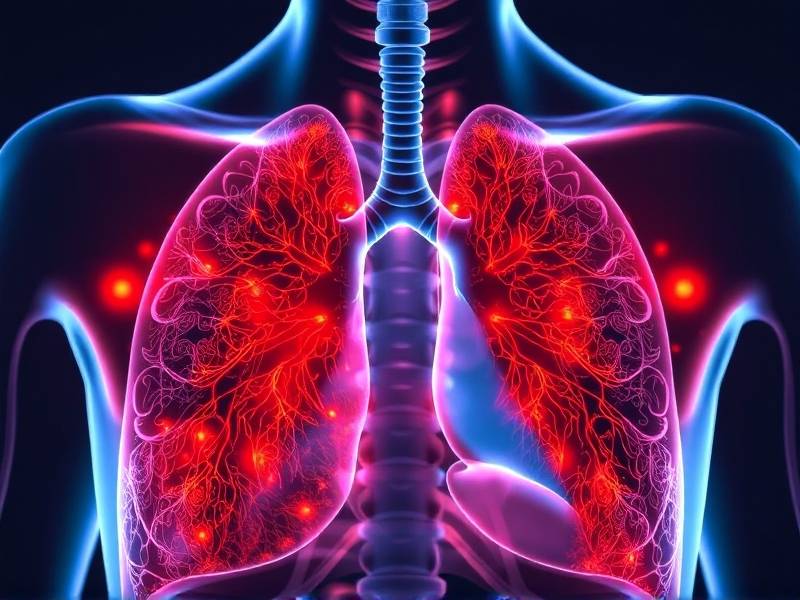Do Alveoli Regenerate After Quitting Smoking?
The Regeneration of Alveoli Post-Quitting Smoking: A Comprehensive Guide
Introduction: Smoking is a well-known health hazard, affecting almost every organ in the body. One of the most affected organs is the lungs, where the alveoli, tiny air sacs, play a crucial role in oxygen exchange. The question that often arises among smokers is whether alveoli regenerate after quitting smoking. In this article, we will explore this topic and provide insights into the potential regeneration process.
Understanding Alveoli: Before diving into the regeneration aspect, it's essential to understand what alveoli are and their role in the respiratory system. Alveoli are tiny air sacs located at the end of bronchial tubes in the lungs. Their primary function is to facilitate gas exchange between oxygen from inhaled air and carbon dioxide from deoxygenated blood.

The Impact of Smoking on Alveoli: Smoking causes significant damage to alveoli due to the harmful chemicals present in tobacco smoke. These chemicals can lead to inflammation, scarring, and loss of elasticity in the lung tissue. Over time, this damage can lead to chronic obstructive pulmonary disease (COPD), emphysema, and other respiratory conditions.

Does Quitting Smoking Help Alveoli Regenerate? The answer to this question is not straightforward. While quitting smoking can significantly reduce further damage to alveoli, it does not guarantee complete regeneration. However, research suggests that certain factors can contribute to the potential regeneration process:
-
Time: It takes time for alveoli to repair themselves after quitting smoking. Studies have shown that within a few weeks of quitting smoking, there is an improvement in lung function as inflammation decreases.
-
Oxygen Supply: Providing your body with adequate oxygen through physical activity can help stimulate alveolar repair and regeneration.
-
Lifestyle Changes: Adopting a healthy lifestyle that includes regular exercise, a balanced diet rich in antioxidants (such as fruits and vegetables), and avoiding exposure to secondhand smoke can support lung health and potentially aid in alveolar regeneration.
-
Genetic Factors: Some individuals may have a genetic predisposition that affects their ability to regenerate damaged tissues, including alveoli.
It's important to note that while some degree of repair may occur after quitting smoking, it is unlikely for completely healthy alveoli to regrow if significant damage has already occurred.
Conclusion: While quitting smoking does not guarantee complete regeneration of damaged alveoli, it significantly reduces further damage and improves lung function over time. By adopting a healthy lifestyle and providing your body with adequate oxygen supply through physical activity and proper nutrition, you can support your lungs' healing process post-quitting smoking.
Remember that it's never too late to quit smoking! If you're struggling with cravings or seeking additional support on your journey towards a smoke-free life, consider consulting healthcare professionals or joining support groups dedicated to helping individuals quit smoking successfully.
References:
- American Lung Association
- National Institutes of Health
- Centers for Disease Control and Prevention
